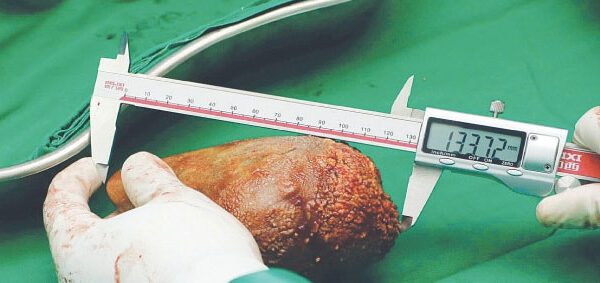Alarming Findings: Lancet Study Shows Over 100 Million People in India Affected by Diabetes
A recent study published in The Lancet reveals that India has an alarming number of individuals living with diabetes. According to the study, an estimated 101 million people in India, which accounts for 11.4% of the country’s population, have been diagnosed with diabetes. Additionally, a survey commissioned by the health ministry suggests that a staggering 136 million individuals, or 15.3% of the population, may be living with pre-diabetes.
Type 2 diabetes is the most prevalent form of the condition. People with diabetes experience high blood sugar levels due to insufficient insulin production or an inability to respond effectively to insulin, which is a vital hormone in regulating blood sugar.
The study, published in The Lancet Diabetes and Endocrinology, is the first of its kind to comprehensively assess the burden of non-communicable diseases across all states in India. The findings indicate that the prevalence of diabetes in India is significantly higher than previously estimated by the World Health Organization (WHO), which had projected 77 million diabetes cases and nearly 25 million individuals at a higher risk of developing diabetes in the near future.
Dr. RM Anjana, the lead author of the study and managing director at Dr. Mohan’s Diabetes Specialities Centre, describes the situation as a “ticking time bomb.” She emphasizes that individuals with pre-diabetes have a high likelihood of converting to diabetes within the next five years, with more than 60% of pre-diabetic individuals progressing to diabetes.
The decade-long study, conducted by the Madras Diabetes Research Foundation in collaboration with the Indian Council of Medical Research (ICMR), involved 113,000 participants aged 20 and above from every state in India. The researchers extrapolated data collected in 2008 to estimate the prevalence of diabetes in 2021, utilizing the latest National Family Health Survey, a comprehensive household survey that encompasses health and social indicators.
The study revealed significant regional variations in diabetes prevalence, with the highest rates observed in Goa (26.4%), Puducherry (26.3%), and Kerala (25.5%). The findings also raise concerns about a potential surge in diabetes cases in states such as Uttar Pradesh, Madhya Pradesh, Bihar, and Arunachal Pradesh, where the prevalence is currently lower.
The study further highlights the higher frequency of diabetes in urban areas compared to rural regions. Rahul Baxi, a consultant diabetologist at Bombay Hospital, attributes this trend to changing lifestyles, improved living standards, urban migration, irregular working hours, sedentary habits, stress, pollution, dietary changes, and the easy availability of fast food.
Contrary to the perception that diabetes primarily affects the affluent or urban population, Dr. Baxi notes that he sees a significant number of patients from smaller towns. He also points out that the prevalence of pre-diabetes is even higher in the population, and many individuals remain undiagnosed for prolonged periods.
In recent years, there has been a concerning rise in diabetes among younger patients. Dr. Baxi shares instances where children of his patients discovered their elevated glucose levels at home while their parents were monitoring their own levels.
Diabetes affects approximately one in 11 adults worldwide and significantly increases the risk of heart attacks, strokes, blindness, kidney failure, and limb amputations. The condition is typically classified into type 1 and type 2 diabetes. Type 1 diabetes is an autoimmune disease where the body’s immune system mistakenly attacks the insulin-producing cells, leading to insufficient insulin production. Type 2 diabetes is primarily associated with poor lifestyle choices, as excess body fat can affect the functioning of insulin.
These findings serve as a wake-up call for India to address the growing diabetes epidemic and implement effective preventive measures and healthcare strategies to mitigate the associated risks.








